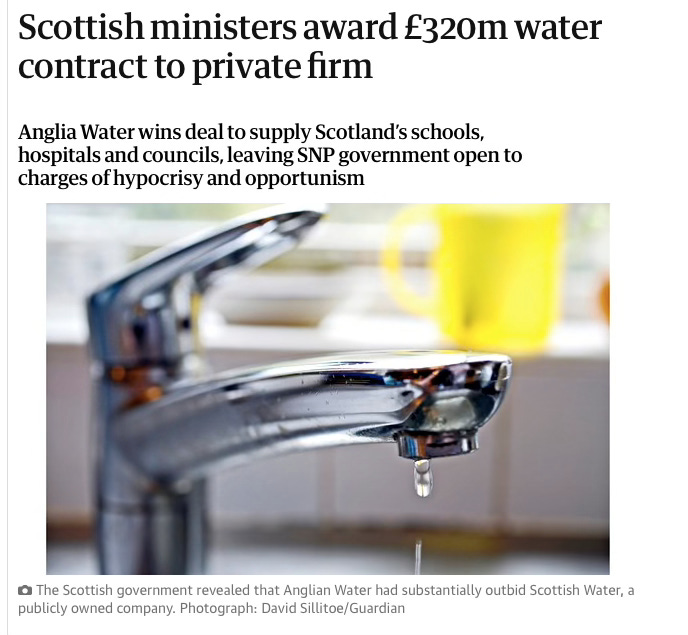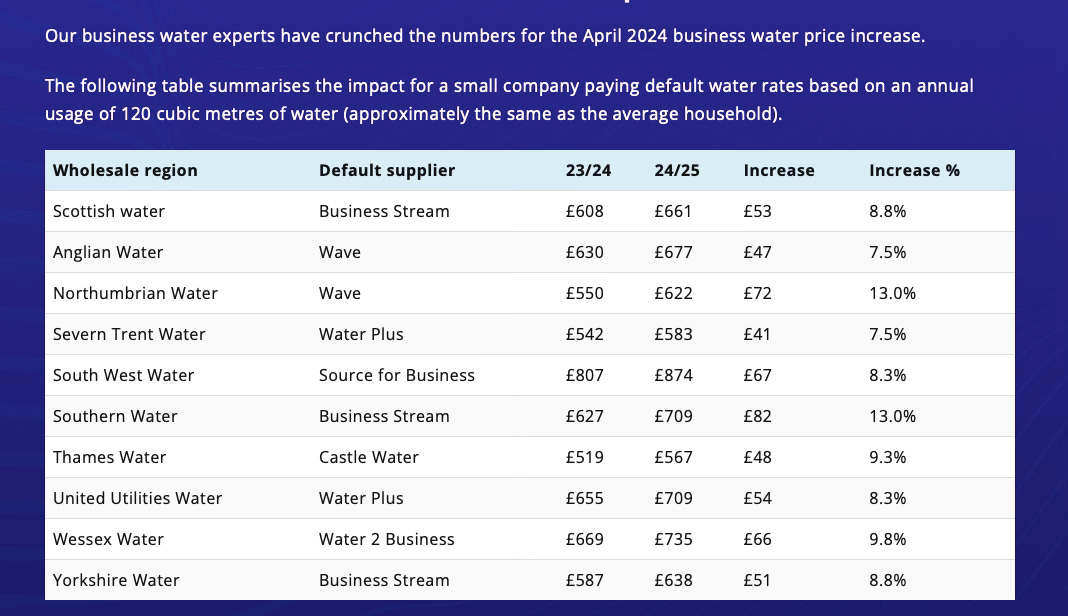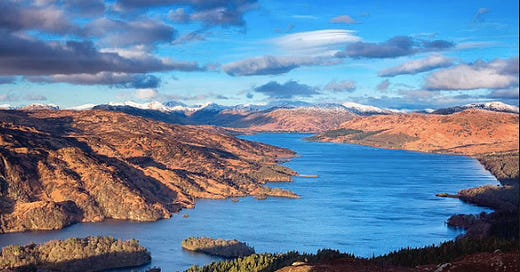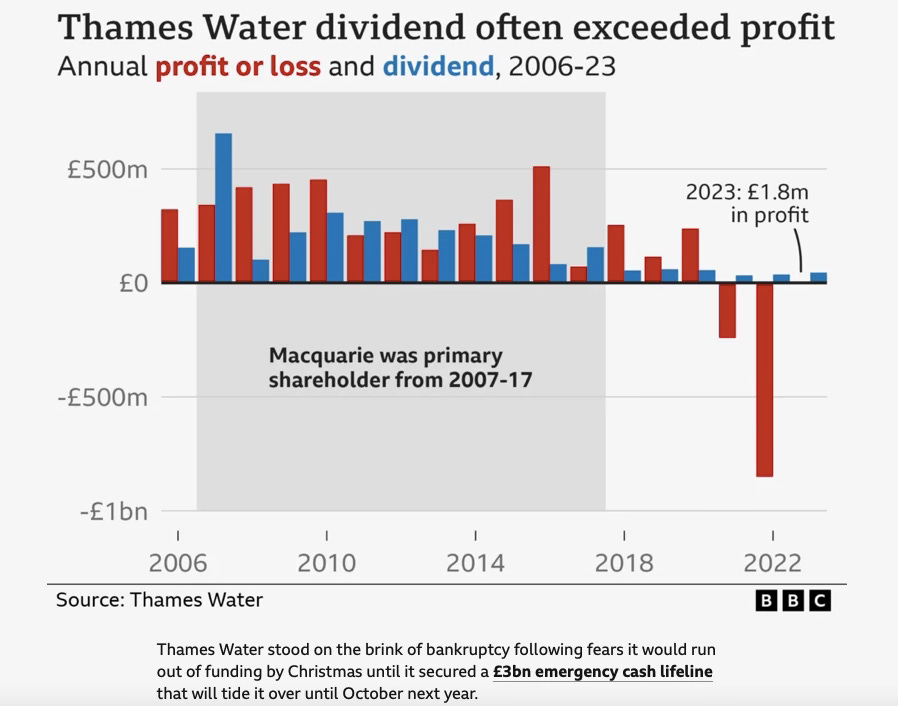As Thames Water drowns in its own sewage and its customers are literally having to drink and bathe in it, I noticed that its CEO, Chris Weston, who was hired in January to turn the private company around, was awarded a £195,000 bonus for his first 3 months at the helm, swelling his pay to £437,000.
Publicly owned Scottish Water’s CEO, Alex Plant, earns £295,000 per year, less than any other water company CEO in the UK.
Mr. Plant was previously with Anglian Water from 2015, which interestingly was awarded a £320 million contract by Nicola Sturgeon’s administration that same year to supply water to Scotland’s schools, hospitals and councils. Anglian Water outbid Scottish Water and it operates a joint venture with Northumbrian Water Group called Wave.

You probably thought, as I once did, that all of Scotland’s water remained in public hands following the Strathclyde Regional Council referendum in 1994 where 97% of voters (75.1% of the electorate turned out) rejected the UK’s proposal to privatise Scotland’s water. It turns out it’s just domestic water supplies that remain public.
Before the last English Labour Holyrood administration was evicted from office in 2007, they half-privatised Scotland’s water, creating Business Stream Ltd, based in Dunfermline. It sells to the non-domestic market all over the UK. On its homepage, it announced that wholesale water prices in England for 2025/26 are expected to rise significantly over previous years.
Commercial water prices in Scotland rose 8.8%, roughly comparable to price increases in England - four English regions were lower.

Business Stream Scotland’s 2023 operating profit was £17.2 million, up 17.8% on the previous year. I couldn’t find out what Business Stream’s Scotland chief earns, but a Herald report from 2014 revealed the remuneration of its then highest paid director, Mark Powles, rose by 15% to £242,800 for the year ended March 31, 2014, ten years ago. No doubt it’s increased a lot since then and I’m guessing the current CEO, Johanna Dow’s, package will be well above that of Scottish Water’s CEO.
Nor could I discover what proportion of Business Stream’s profits are reinvested in the business vs. paying dividends to shareholders and bonuses to company directors.
In 2024 Scottish Water also raised prices to domestic customers by 8.8%, but invested £1.02 billion to upgrade and replace water and waste water assets across Scotland. It spends £72 more per household or 35% more than private English water companies. If English companies invested at this same rate, they would have spent an additional £28 billion on infrastructure to fix leaks and reduce sewage dumps. Instead, since 1990, English water companies have paid £52 billion in dividends to shareholders.
As a result of our publicly owned domestic water company, our bills are lower and our rivers and seas are far cleaner. Only 14 percent of English rivers are considered to have good ecological status whereas in Scotland the figure is 87%.
If Labour were to form a right wing British Nationalist coalition in 2026, they’d be sorely tempted to finish the job of fully privatising Scotland’s water, despite the complete catastrophe privatisation has wrought in England. And we know that English Labour’s Scottish supervisor, Anas Sarwar, will eagerly do whatever his London masters tell him.









Thanks for this. There’s a lot here I didn’t know about. Heaven forbid that we are privatised even further. I think I’ll begin designing flyers for the ‘26 Holyrood elections along the lines of, ‘Vote for whoever you like as long as they don’t belong to an English party. We want our domestic water to stay Scottish and stay clean’. That alone should prevent an English takeover.
The moment some politician suggests that Scottish Water should be privatised, is the moment we should secede from the Union, if we haven't already. Civil disobedience, the lot.